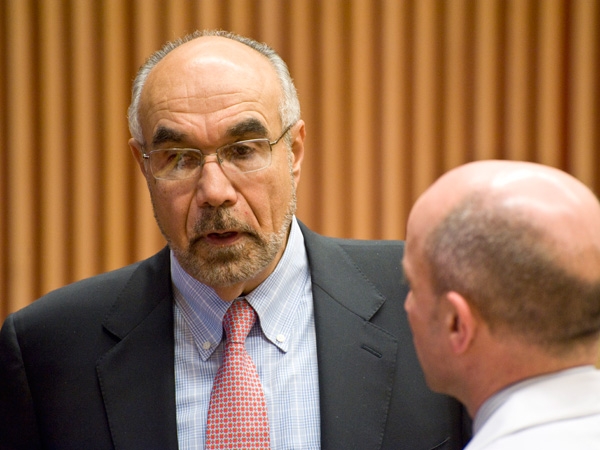Dr. Jean Pape, professor of medicine at Weill Cornell, who has spent nearly three decades striving to improve health conditions for the people of Haiti, spoke on May 2 at Weill Cornell about his new goal: creating a "Global Health Village" in Port-au-Prince. This village would serve as a model for similar villages that could provide a better life for large numbers of impoverished people in Haiti and, ultimately, around the world.
The founder and director of GHESKIO, an organization begun in 1982 to study Kaposi's sarcoma and opportunistic infections, and later HIV/AIDS, Dr. Pape said the tragedies in Haiti require drastic measures. After the 2010 earthquake, when thousands of suddenly homeless Haitians poured into a Port-au-Prince soccer field, GHESKIO created a tent city in which many of their already successful programs — such as one run by Cornell graduate Elizabeth Fox to improve nutrition; TB intervention; preventive measures against cholera; and large-scale training of Haitian nurses and lab technicians — were implemented and are contributing to improved health of the tent city's inhabitants.

Dr. Pape (left) and Dr. Roy Gulick
Since the earthquake, Dr. Pape has been a constant presence in Haiti. Not only did GHESKIO provide emergency care on a massive scale, but the organization is tackling the cholera epidemic that erupted soon afterward and has killed about 5,000 people. Dr. Pape said the epidemic is an opportunity to improve sanitary conditions, such as making water potable and latrines available to greater numbers. GHESKIO created two cholera treatment centers last year and is conducting a study to introduce oral vaccines in slums at risk for the disease.
GHESKIO responded to the 2010 catastrophes by significantly expanding its outreach and goals. "The earthquake made visible a large population living in the slums that can no longer be ignored," Dr. Pape said.
Since GHESKIO's creation — with Cornell's support "since day one" — its effects on Haiti have been widespread throughout the country: Child mortality has dropped 50 percent, and HIV transmission from mother to child fell from 30 percent in 1994 to just 4.5 percent in 2009. Dr. Pape pointed out, however, that before the quake, the clinic had had little interaction with the "big slum" directly across the street, which 100,000 people call home.
It is this neighborhood, dubbed "City of God," that has become a focal point for GHESKIO's new goal of creating a model for a Global Health Village. This model would utilize programs that Dr. Pape's clinic implemented in his tent city. "Instead of just improving the lives of a few thousand people, we may be about to improve the lives of 100,000 people in Haiti," Dr. Pape said, adding that this same model holds the possibility of providing hope for a better life for many outside of Haiti in other parts of the world.
Photography by Charles Manley.

